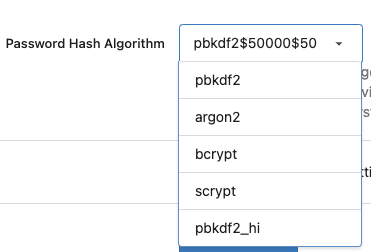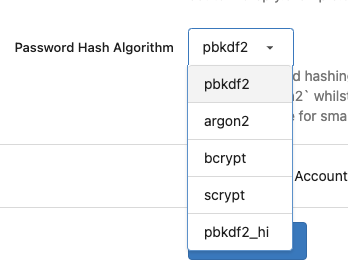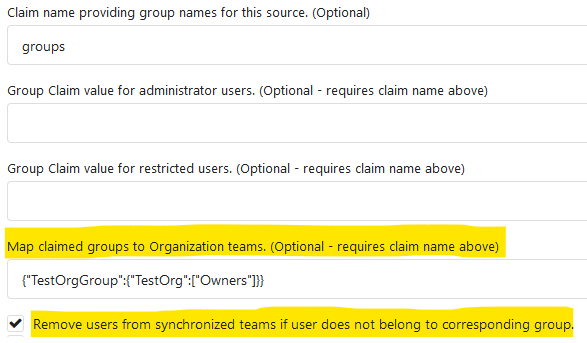## TLDR
* Fix the broken page / broken image problem when click "Install"
* Close#20089
* Fix the Password Hash Algorithm display problem for #22942
* Close#23183
* Close#23184
## Details
### The broken page / broken image problem when click "Install"
(Redirect failed after install gitea #23184)
Before: when click "install", all new requests will fail, because the
server has been restarted. Users just see a broken page with broken
images, sometimes the server is not ready but the user would have been
redirect to "/user/login" page, then the users see a new broken page
(connection refused or something wrong ...)
After: only check InstallLock=true for necessary handlers, and sleep for
a while before restarting the server, then the browser has enough time
to load the "post-install" page. And there is a script to check whether
"/user/login" is ready, the user will only be redirected to the login
page when the server is ready.
### During new instance setup make 'Gitea Base URL' filled from
window.location.origin #20089
If the "app_url" input contains `localhost` (the default value from
config), use current window's location href as the `app_url` (aka
ROOT_URL)
### Fix the Password Hash Algorithm display problem for "Provide the
ability to set password hash algorithm parameters #22942"
Before: the UI shows `pbkdf2$50000$50`
<details>

</details>
After: the UI shows `pbkdf2`
<details>

</details>
### GET data: net::ERR_INVALID_URL #23183
Cause by empty `data:` in `<link rel="manifest"
href="data:{{.ManifestData}}">`
---------
Co-authored-by: Jason Song <i@wolfogre.com>
Co-authored-by: Lunny Xiao <xiaolunwen@gmail.com>
Co-authored-by: techknowlogick <techknowlogick@gitea.io>
minio/sha256-simd provides additional acceleration for SHA256 using
AVX512, SHA Extensions for x86 and ARM64 for ARM.
It provides a drop-in replacement for crypto/sha256 and if the
extensions are not available it falls back to standard crypto/sha256.
---------
Signed-off-by: Andrew Thornton <art27@cantab.net>
Co-authored-by: John Olheiser <john.olheiser@gmail.com>
During the recent hash algorithm change it became clear that the choice
of password hash algorithm plays a role in the time taken for CI to run.
Therefore as attempt to improve CI we should consider using a dummy
hashing algorithm instead of a real hashing algorithm.
This PR creates a dummy algorithm which is then set as the default
hashing algorithm during tests that use the fixtures. This hopefully
will cause a reduction in the time it takes for CI to run.
---------
Signed-off-by: Andrew Thornton <art27@cantab.net>
Co-authored-by: Lunny Xiao <xiaolunwen@gmail.com>
This PR refactors and improves the password hashing code within gitea
and makes it possible for server administrators to set the password
hashing parameters
In addition it takes the opportunity to adjust the settings for `pbkdf2`
in order to make the hashing a little stronger.
The majority of this work was inspired by PR #14751 and I would like to
thank @boppy for their work on this.
Thanks to @gusted for the suggestion to adjust the `pbkdf2` hashing
parameters.
Close#14751
---------
Signed-off-by: Andrew Thornton <art27@cantab.net>
Co-authored-by: delvh <dev.lh@web.de>
Co-authored-by: John Olheiser <john.olheiser@gmail.com>
Co-authored-by: Lunny Xiao <xiaolunwen@gmail.com>
To avoid duplicated load of the same data in an HTTP request, we can set
a context cache to do that. i.e. Some pages may load a user from a
database with the same id in different areas on the same page. But the
code is hidden in two different deep logic. How should we share the
user? As a result of this PR, now if both entry functions accept
`context.Context` as the first parameter and we just need to refactor
`GetUserByID` to reuse the user from the context cache. Then it will not
be loaded twice on an HTTP request.
But of course, sometimes we would like to reload an object from the
database, that's why `RemoveContextData` is also exposed.
The core context cache is here. It defines a new context
```go
type cacheContext struct {
ctx context.Context
data map[any]map[any]any
lock sync.RWMutex
}
var cacheContextKey = struct{}{}
func WithCacheContext(ctx context.Context) context.Context {
return context.WithValue(ctx, cacheContextKey, &cacheContext{
ctx: ctx,
data: make(map[any]map[any]any),
})
}
```
Then you can use the below 4 methods to read/write/del the data within
the same context.
```go
func GetContextData(ctx context.Context, tp, key any) any
func SetContextData(ctx context.Context, tp, key, value any)
func RemoveContextData(ctx context.Context, tp, key any)
func GetWithContextCache[T any](ctx context.Context, cacheGroupKey string, cacheTargetID any, f func() (T, error)) (T, error)
```
Then let's take a look at how `system.GetString` implement it.
```go
func GetSetting(ctx context.Context, key string) (string, error) {
return cache.GetWithContextCache(ctx, contextCacheKey, key, func() (string, error) {
return cache.GetString(genSettingCacheKey(key), func() (string, error) {
res, err := GetSettingNoCache(ctx, key)
if err != nil {
return "", err
}
return res.SettingValue, nil
})
})
}
```
First, it will check if context data include the setting object with the
key. If not, it will query from the global cache which may be memory or
a Redis cache. If not, it will get the object from the database. In the
end, if the object gets from the global cache or database, it will be
set into the context cache.
An object stored in the context cache will only be destroyed after the
context disappeared.
Fixes#19555
Test-Instructions:
https://github.com/go-gitea/gitea/pull/21441#issuecomment-1419438000
This PR implements the mapping of user groups provided by OIDC providers
to orgs teams in Gitea. The main part is a refactoring of the existing
LDAP code to make it usable from different providers.
Refactorings:
- Moved the router auth code from module to service because of import
cycles
- Changed some model methods to take a `Context` parameter
- Moved the mapping code from LDAP to a common location
I've tested it with Keycloak but other providers should work too. The
JSON mapping format is the same as for LDAP.

---------
Co-authored-by: Lunny Xiao <xiaolunwen@gmail.com>
This PR fixes two bugs with Webauthn support:
* There was a longstanding bug within webauthn due to the backend using
URLEncodedBase64 but the javascript using decoding using plain base64.
This causes intermittent issues with users reporting decoding errors.
* Following the recent upgrade to webauthn there was a change in the way
the library expects RPOrigins to be configured. This leads to the
Relying Party Origin not being configured and prevents registration.
Fix#22507
Signed-off-by: Andrew Thornton <art27@cantab.net>
Co-authored-by: wxiaoguang <wxiaoguang@gmail.com>
Change all license headers to comply with REUSE specification.
Fix#16132
Co-authored-by: flynnnnnnnnnn <flynnnnnnnnnn@github>
Co-authored-by: John Olheiser <john.olheiser@gmail.com>
Migrate from U2F to Webauthn
Co-authored-by: Andrew Thornton <art27@cantab.net>
Co-authored-by: 6543 <6543@obermui.de>
Co-authored-by: wxiaoguang <wxiaoguang@gmail.com>
`models` does far too much. In particular it handles all `UserSignin`.
It shouldn't be responsible for calling LDAP, SMTP or PAM for signing in.
Therefore we should move this code out of `models`.
This code has to depend on `models` - therefore it belongs in `services`.
There is a package in `services` called `auth` and clearly this functionality belongs in there.
Plan:
- [x] Change `auth.Auth` to `auth.Method` - as they represent methods of authentication.
- [x] Move `models.UserSignIn` into `auth`
- [x] Move `models.ExternalUserLogin`
- [x] Move most of the `LoginVia*` methods to `auth` or subpackages
- [x] Move Resynchronize functionality to `auth`
- Involved some restructuring of `models/ssh_key.go` to reduce the size of this massive file and simplify its files.
- [x] Move the rest of the LDAP functionality in to the ldap subpackage
- [x] Re-factor the login sources to express an interfaces `auth.Source`?
- I've done this through some smaller interfaces Authenticator and Synchronizable - which would allow us to extend things in future
- [x] Now LDAP is out of models - need to think about modules/auth/ldap and I think all of that functionality might just be moveable
- [x] Similarly a lot Oauth2 functionality need not be in models too and should be moved to services/auth/source/oauth2
- [x] modules/auth/oauth2/oauth2.go uses xorm... This is naughty - probably need to move this into models.
- [x] models/oauth2.go - mostly should be in modules/auth/oauth2 or services/auth/source/oauth2
- [x] More simplifications of login_source.go may need to be done
- Allow wiring in of notify registration - *this can now easily be done - but I think we should do it in another PR* - see #16178
- More refactors...?
- OpenID should probably become an auth Method but I think that can be left for another PR
- Methods should also probably be cleaned up - again another PR I think.
- SSPI still needs more refactors.* Rename auth.Auth auth.Method
* Restructure ssh_key.go
- move functions from models/user.go that relate to ssh_key to ssh_key
- split ssh_key.go to try create clearer function domains for allow for
future refactors here.
Signed-off-by: Andrew Thornton <art27@cantab.net>
Unfortunately go panics you try to cast a nil interface{} as another primitive
therefore you need to check interfaces are not nil before casting.
Fix#16025
Signed-off-by: Andrew Thornton <art27@cantab.net>
Co-authored-by: Lunny Xiao <xiaolunwen@gmail.com>
Co-authored-by: techknowlogick <techknowlogick@gitea.io>
It appears that people have been using token authentication to navigate to raw paths
and recent changes have broken this. Whilst ideally these paths would not be being used
like this - it was not the intention to be a breaking change.
This PR restores access to these paths.
Fix#13772
Signed-off-by: Andrew Thornton <art27@cantab.net>
* Encrypt LDAP bind password in db with SECRET_KEY
The LDAP source bind password are currently stored in plaintext in the db
This PR simply encrypts them with the setting.SECRET_KEY.
Fix#15460
Signed-off-by: Andrew Thornton <art27@cantab.net>
* remove ui warning regarding unencrypted password
Co-authored-by: silverwind <me@silverwind.io>
* Create a session on ReverseProxy and ensure that ReverseProxy users cannot change username
ReverseProxy users should generate a session on reverse proxy username change.
Also prevent ReverseProxy users from changing their username.
Fix#2407
* add testcase
Signed-off-by: Andrew Thornton <art27@cantab.net>
* Prevent double-login for Git HTTP and LFS and simplify login
There are a number of inconsistencies with our current methods for
logging in for git and lfs. The first is that there is a double login
process. This is particularly evident in 1.13 where there are no less
than 4 hash checks for basic authentication due to the previous
IsPasswordSet behaviour.
This duplicated code had individual inconsistencies that were not
helpful and caused confusion.
This PR does the following:
* Remove the specific login code from the git and lfs handlers except
for the lfs special bearer token
* Simplify the meaning of DisableBasicAuthentication to allow Token and
Oauth2 sign-in.
* The removal of the specific code from git and lfs means that these
both now have the same login semantics and can - if not
DisableBasicAuthentication - login from external services. Further it
allows Oauth2 token authentication as per our standard mechanisms.
* The change in the recovery handler prevents the service from
re-attempting to login - primarily because this could easily cause a
further panic and it is wasteful.
* add test
Signed-off-by: Andrew Thornton <art27@cantab.net>
Co-authored-by: Andrew Thornton <art27@cantab.net>
It is currenly impossible to detect which "SSO" method is responsible for login. This
PR adds some basic trace logging to these methods.
Signed-off-by: Andrew Thornton <art27@cantab.net>
* Refactored handleOAuth2SignIn in routers/user/auth.go
The function handleOAuth2SignIn was called twice but some code path could only
be reached by one of the invocations. Moved the unnecessary code path out of
handleOAuth2SignIn.
* Refactored user creation
There was common code to create a user and display the correct error message.
And after the creation the only user should be an admin and if enabled a
confirmation email should be sent. This common code is now abstracted into
two functions and a helper function to call both.
* Added auto-register for OAuth2 users
If enabled new OAuth2 users will be registered with their OAuth2 details.
The UserID, Name and Email fields from the gothUser are used.
Therefore the OpenID Connect provider needs additional scopes to return
the coresponding claims.
* Added error for missing fields in OAuth2 response
* Linking and auto linking on oauth2 registration
* Set default username source to nickname
* Add automatic oauth2 scopes for github and google
* Add hint to change the openid connect scopes if fields are missing
* Extend info about auto linking security risk
Co-authored-by: Viktor Kuzmin <kvaster@gmail.com>
Signed-off-by: Martin Michaelis <code@mgjm.de>
Add SameSite setting for cookies and rationalise the cookie setting code. Switches SameSite to Lax by default.
There is a possible future extension of differentiating which cookies could be set at Strict by default but that is for a future PR.
Fix#5583
Signed-off-by: Andrew Thornton <art27@cantab.net>
Fix#14121, #14478.
The `AccessLog` middleware has to be after `Contexter` or `APIContexter` so that we can get `LoginUserName` if possible.
And also there is a **BREAK** change that it removed internal API access log.
Use [chi](https://github.com/go-chi/chi) instead of the forked [macaron](https://gitea.com/macaron/macaron). Since macaron and chi have conflicts with session share, this big PR becomes a have-to thing. According my previous idea, we can replace macaron step by step but I'm wrong. :( Below is a list of big changes on this PR.
- [x] Define `context.ResponseWriter` interface with an implementation `context.Response`.
- [x] Use chi instead of macaron, and also a customize `Route` to wrap chi so that the router usage is similar as before.
- [x] Create different routers for `web`, `api`, `internal` and `install` so that the codes will be more clear and no magic .
- [x] Use https://github.com/unrolled/render instead of macaron's internal render
- [x] Use https://github.com/NYTimes/gziphandler instead of https://gitea.com/macaron/gzip
- [x] Use https://gitea.com/go-chi/session which is a modified version of https://gitea.com/macaron/session and removed `nodb` support since it will not be maintained. **BREAK**
- [x] Use https://gitea.com/go-chi/captcha which is a modified version of https://gitea.com/macaron/captcha
- [x] Use https://gitea.com/go-chi/cache which is a modified version of https://gitea.com/macaron/cache
- [x] Use https://gitea.com/go-chi/binding which is a modified version of https://gitea.com/macaron/binding
- [x] Use https://github.com/go-chi/cors instead of https://gitea.com/macaron/cors
- [x] Dropped https://gitea.com/macaron/i18n and make a new one in `code.gitea.io/gitea/modules/translation`
- [x] Move validation form structs from `code.gitea.io/gitea/modules/auth` to `code.gitea.io/gitea/modules/forms` to avoid dependency cycle.
- [x] Removed macaron log service because it's not need any more. **BREAK**
- [x] All form structs have to be get by `web.GetForm(ctx)` in the route function but not as a function parameter on routes definition.
- [x] Move Git HTTP protocol implementation to use routers directly.
- [x] Fix the problem that chi routes don't support trailing slash but macaron did.
- [x] `/api/v1/swagger` now will be redirect to `/api/swagger` but not render directly so that `APIContext` will not create a html render.
Notices:
- Chi router don't support request with trailing slash
- Integration test `TestUserHeatmap` maybe mysql version related. It's failed on my macOS(mysql 5.7.29 installed via brew) but succeed on CI.
Co-authored-by: 6543 <6543@obermui.de>
Fixed#8861
* use ajax on PR review page
* handle review comments
* extract duplicate code
FetchCodeCommentsByLine was initially more or less copied from fetchCodeCommentsByReview. Now they both use a common findCodeComments function instead
* use the Engine that was passed into the method
Co-authored-by: 6543 <6543@obermui.de>
Co-authored-by: Lunny Xiao <xiaolunwen@gmail.com>
Co-authored-by: Lauris BH <lauris@nix.lv>
* fix build
* take flash error message back and fix more windows lint error
* performance optimization
* own step to check lint for windows
Co-authored-by: 6543 <6543@obermui.de>
* Added MirrorInterval to the API
* Remove MirrorInterval from CreateRepository
* Removed Duplicate UpdateMirror Function
* Updated Error Logging
* Update Log Message for is not Mirror
Co-authored-by: 6543 <6543@obermui.de>
* Delete Debug Statement that snuck in
Co-authored-by: zeripath <art27@cantab.net>
* Add Check for If Interval is too small
* Output to API Call
* Add Error Object when time is Less than Min Interval
* Frequency Error Message
Co-authored-by: zeripath <art27@cantab.net>
* Allow Zero Mirror Interval
Co-authored-by: 6543 <6543@obermui.de>
Co-authored-by: zeripath <art27@cantab.net>
This is "minimal" in the sense that only the Authorization Code Flow
from OpenID Connect Core is implemented. No discovery, no configuration
endpoint, and no user scope management.
OpenID Connect is an extension to the (already implemented) OAuth 2.0
protocol, and essentially an `id_token` JWT is added to the access token
endpoint response when using the Authorization Code Flow. I also added
support for the "nonce" field since it is required to be used in the
id_token if the client decides to include it in its initial request.
In order to enable this extension an OAuth 2.0 scope containing
"openid" is needed. Other OAuth 2.0 requests should not be impacted by
this change.
This minimal implementation is enough to enable single sign-on (SSO)
for other sites, e.g. by using something like `mod_auth_openidc` to
only allow access to a CI server if a user has logged into Gitea.
Fixes: #1310
Co-authored-by: 6543 <6543@obermui.de>
Co-authored-by: Lunny Xiao <xiaolunwen@gmail.com>
Co-authored-by: zeripath <art27@cantab.net>
* Direct avatar rendering
This adds new template helpers for avatar rendering which output image
elements with direct links to avatars which makes them cacheable by the
browsers.
This should be a major performance improvment for pages with many avatars.
* fix avatars of other user's profile pages
* fix top border on user avatar name
* uncircle avatars
* remove old incomplete avatar selector
* use title attribute for name and add it back on blame
* minor refactor
* tweak comments
* fix url path join and adjust test to new result
* dedupe functions
* Remove obsolete change of email on profile page
The change email on the account profile page is out-of-date
and unnecessary.
Changing email should be done using the account page.
Fix#13336
Signed-off-by: Andrew Thornton <art27@cantab.net>